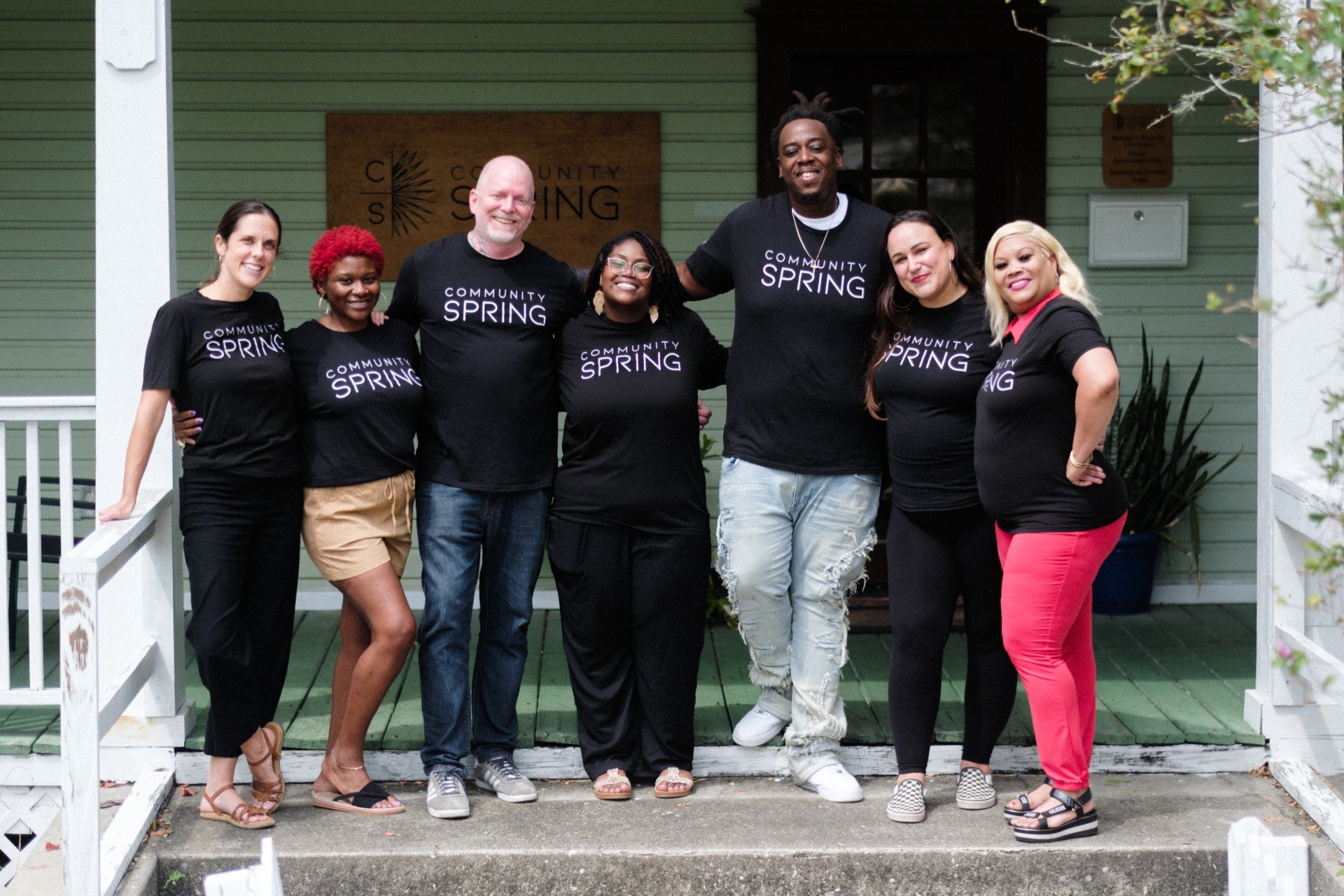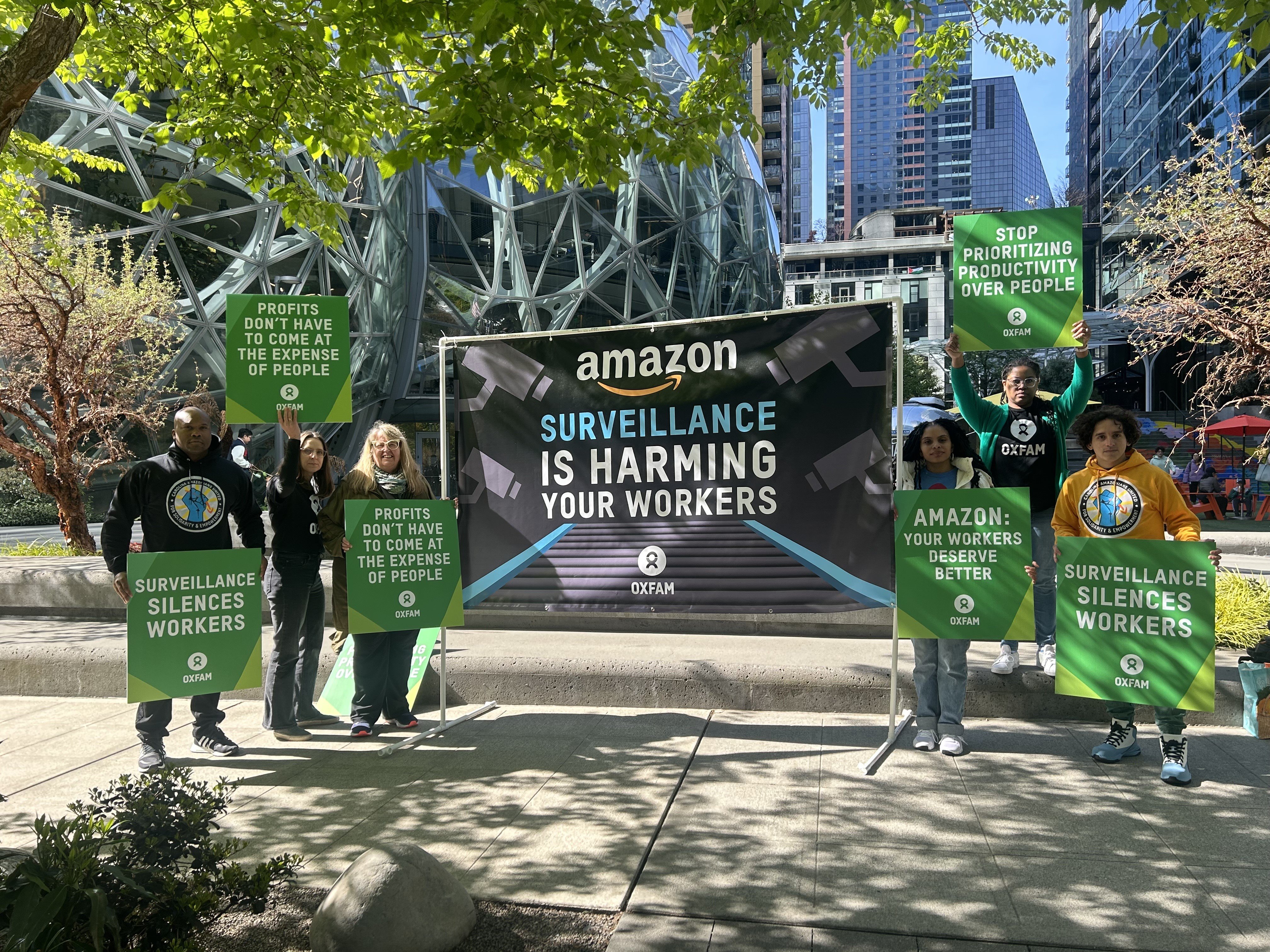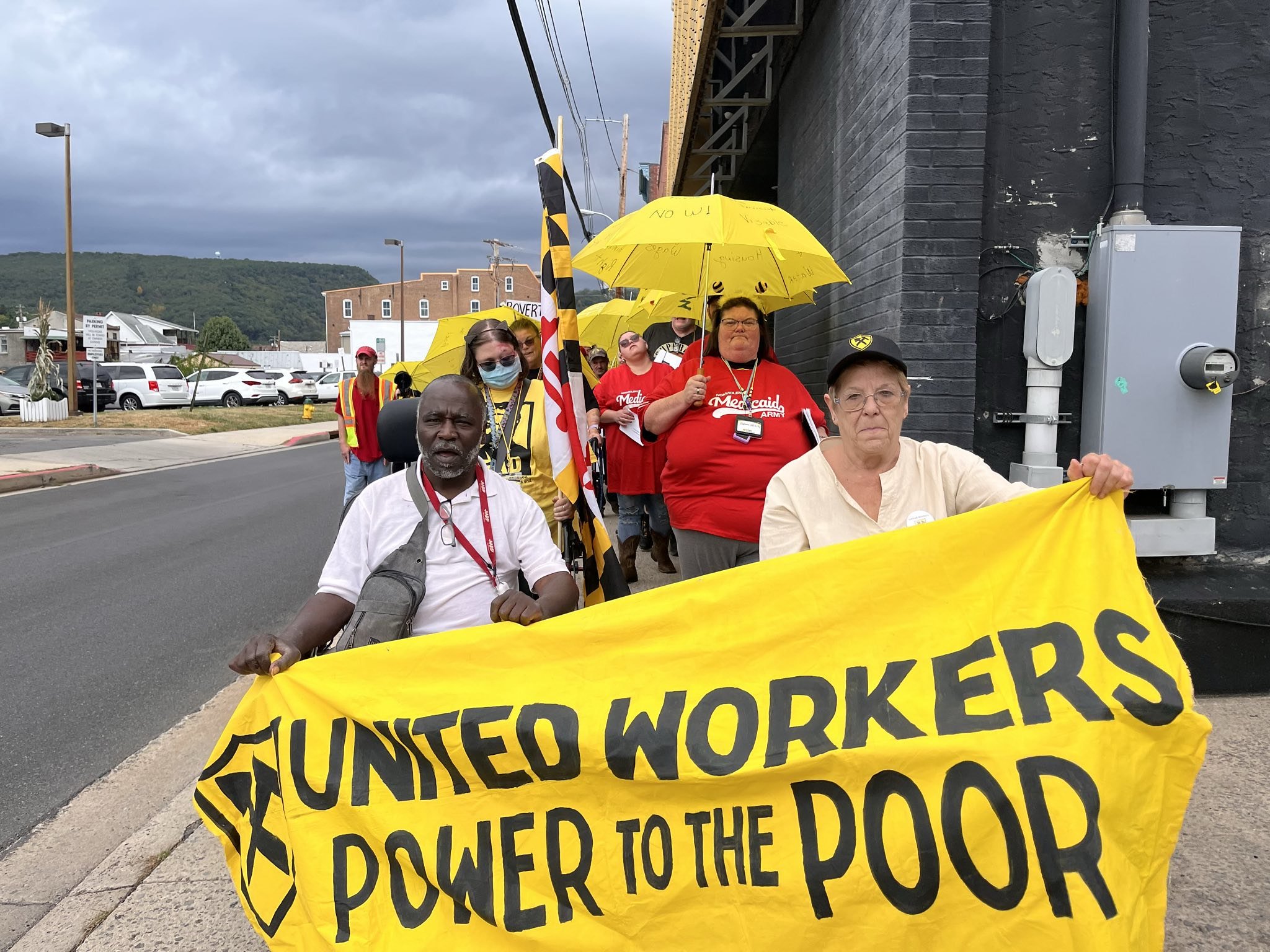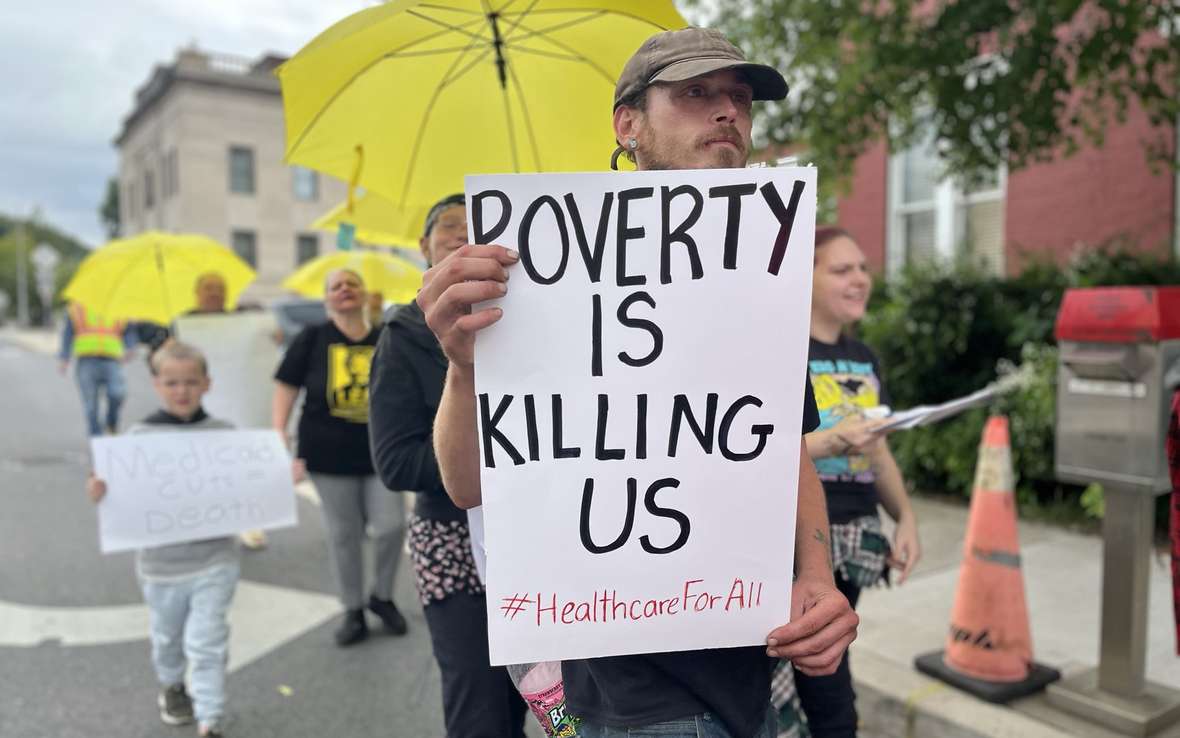Lessons from champions of equality
The U.S. is in the midst of an inequality crisis. Everyday American are struggling to buy groceries, pay for childcare, and keep up with their bills while billionaires’ fortunes continue to soar. Oxfam’s new report, “UNEQUAL: The rise of a new American oligarchy and the change we need” breaks down how our economic system was designed to favor the ultra-wealthy few and exposes just how extreme and intentional this divide has become.
However, the future doesn’t have to be all doom and gloom. “UNEQUAL” also lays out a blueprint for turning the tide. Our solutions aren’t wishful thinking; they’re based in real changes we have witnessed working in coalition with groups that are fighting inequality every day.
Here are three examples of organizations who are addressing immediate needs while building power to effect long-term change.
Breaking the cycle of poverty and incarceration with guaranteed income
“We see stability as a right and not a privilege,” said Kevin Scott, Program Director of Just Income at Community Spring, an organization based in Gainesville, Florida, that offers 12 months of unconditional direct cash support to people who have returned to the community from incarceration.
Community Spring views incarceration as both a cause and effect of poverty. By and large, Scott said, most people who end up incarcerated come from poverty. Florida is one of the handful of states that does not pay prisoners anything for mandatory labor. Since they are not earning money, incarcerated individuals rely on their families to pay for anything they need while in prison.

Nobody should be too poor to be free
What happens when someone is released from prison in Florida? They are given $50 to rebuild their lives. “You have some serious math ahead of you,” said Scott. “Am I going to eat? Am I going to put this towards a hotel room that this doesn't cover? Like what do I do with $50?”
Oftentimes, Scott said, people come home with massive debts, including court fees, restitution, and on top of that, they may be required to take mandatory classes with fees. And if someone is unable to make their payments, they may end up re-incarcerated.
How guaranteed income helps prevent recidivism
In its third year now, Community Spring randomly selects people returning home from incarceration in their county to receive $800 a month. So far, it has dispersed more than $1 million to 157 recipients.
This money helped cut money-related probation violations in half, according to Scott. Economic resilience and food security also improved. Participants were able to pay off correctional debt, like settling probation fees. Community Spring has reduced reincarceration many times over compared with traditional punitive correctional models.
One woman who participated in the project in its pilot year was able to use the money to escape a domestic violence situation, get into stable housing, and address her addiction. Another recipient had been in and out of the prison system since the ‘80s. He received guaranteed income in 2022, and he has been able to stay out of prison since then. “The money was stabilizing enough to disrupt that revolving door in his life,” said Scott.
Amazon workers organize
“A lot of workers at Amazon are homeless,” said Shancia Highsmith, an organizer at CAUSE, a coalition of present and former Amazon workers based in Goldsboro, North Carolina, that fights for living wages. "We should have better pay and more sick time.”
Workers are feeling the pinch of the economy Highsmith said. "People are suffering right now, trying to come up with food, and the economy has gone bad over the years.”

Dignified working conditions for warehouse workers
Oxfam began partnering with CAUSE in 2024 to expose the harsh working conditions endured by warehouse workers. In the report At Work and Under Watch, workers reported being unable to take care of basic needs, such as using the bathroom, for fear of falling behind production standards. Workers shared both physical and mental health impacts, ranging from increased injuries and pain to dehydration, exhaustion, and anxiety and depression.
These are just a few of the workplace concerns that brought current and former Amazon workers together in 2022 to form CAUSE as a way to collective demand better treatment.
Their aim is to form a union where all workers’ voices can be heard and which can collectively bargain on behalf of all workers’ needs.
"Some people think we dislike Amazon,” said Highsmith. "It’s not that we dislike Amazon. It’s about what goes on at work and the way people are treated.”
In February, workers at the RDU1 fulfillment center participated in an election to unionize that was not successful, but CAUSE remains hopeful. "It’s not going to stop us,” said Highsmith. "It’s just going to make us stronger.”
Uniting to eradicate poverty
"We’re seeing across the board an increase in criminalization of the poor,” said Iletha Joynes, media and communications coordinator for United Workers.
United Workers is an organization led by poor and working-class people that is advancing a movement to end poverty in the state of Maryland. The group works to demand freedom from poverty as a human right.
At a time when Elliott Slater, United Workers’ coordinator for the Western Region of Maryland, reports that poor people in the region are being pushed out of sight (for instance, the city of Cumberland banned eating food in a public park where homeless people gather and churches distribute food) the need for a movement that recognizes the rights of people in poverty is more important than ever.

Breaking down lines of division
One way for people in power to maintain the status quo is to sow division among disenfranchised people.
"Those in power … they don't want things to change because they have a vested interest in capitalism and so they employ these tactics that keep us distracted, keep us fighting each other,” said Joynes. "They don’t want a poor Black mother in Baltimore like me thinking I have anything in common with Elliott, a poor white mother in Western Maryland, but both of us are struggling to provide for the most basic needs of our children.”
That’s why United Workers organizes across lines of division—gender, race, geography, political parties, religion—to address common struggles. Slater described Western Maryland as a hospital desert, with a limited number of primary care providers for people on Medicaid. They are currently campaigning for the right to health for poor people, organizing so that people without money can access health care and live in a healthy way, which includes food, housing, and child care.
According to United Workers, one in three Marylanders face food insecurity. Shutdown-related uncertainty around SNAP benefits and expected cuts to food assistance as a result of the One Big Beautiful Bill Act could make this worse. As part of the Right to Health campaign, the United Workers called on Maryland governor Wes Moore to invest state resources to cover SNAP gaps to ensure people do not go hungry due to the shutdown, something that he has since done.
"We’re living in very difficult times right now, and a lot of people are very scared and worried. But in that, there’s an opportunity for us to see each other and to come together in our common struggles, and realize that we are powerful,” said Joynes.



